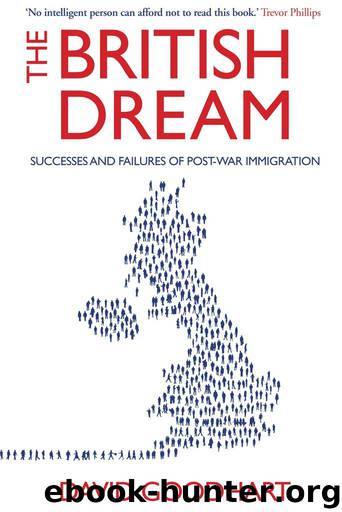The British Dream by Goodhart David

Author:Goodhart, David
Language: eng
Format: epub, mobi
ISBN: 9780857899750
Publisher: Atlantic Books Ltd
Published: 2013-03-31T16:00:00+00:00
Multiculturalism, What’s the Big Idea?
Academic multiculturalism faces two big intellectual challenges. First, how can its stress on group rights and the primacy of ethnic identities be reconciled with the centrality of individual rights in western liberalism? Second, how can a multiculturalism that wants equal recognition for minority groups, and not just minority rights, and is hostile to the idea of a dominant culture, co-exist with the idea of democratic national citizenship?
First, the liberalism debate. How universally applicable are liberal ideas and how far should minority groups be able to challenge them on things like women’s equality and free speech? To what extent should minority religious and cultural practices be accepted in the name of cultural difference? At the extreme end the practices cited are female genital mutilation, polygamy and forced marriage, but more mainstream practices might include wearing traditional dress (including the burka or niqab) in the school or workplace, Muslim and Jewish forms of slaughtering animals, segregation of the sexes and protecting minority religions from ridicule. The traditional objection to some of the above is made either in the name of universal liberal rights – to female equality for example – or in the name of a core culture, ‘That’s how we do/don’t do things around here.’
The traditional defence of difference or exotic practices is the Millian principle that they should only be stopped if they cause harm to others. But this can be hard to measure. If a neighbourhood suddenly acquires a new population of people wearing the burkha and speaking a foreign language, the original residents may feel an indirect psychological harm. And, in any case, an extreme multiculturalist could justify causing harm to someone – say forcing them to accept an arranged marriage against their will – by arguing on utilitarian grounds that the continued existence of the group culture is a source of happiness to many and depends on the persistence of such practices. As the philosopher Anthony Appiah has pointed out, ‘upholding differences among groups may entail imposing uniformity within them … culture represents not only difference but the elimination of difference’.143
There are a few radical multiculturalists who do not believe that western liberal principles, such as female equality, should trump traditional ethnic practices. But most academic multiculturalists – and certainly the three most influential in Britain, Bhikhu Parekh, Tariq Modood and the Canadian Will Kymlicka – are liberals to the extent that they sign up to a minimum number of universal rights and rules.
This means they are not full-blooded cultural relativists. The Canadian multiculturalist philosopher Charles Taylor, in his influential 1992 essay ‘The Politics of Recognition’, rejects the idea that all cultures should be declared of equal moral worth a priori; instead he argues for a presumption that any culture should be worthy of at least some respect if it has proved meaningful to many people over an extended period of time. Similarly, Bhikhu Parekh writes in his book Rethinking Multiculturalism that ‘although all cultures have worth and deserve basic respect, they are not equally worthy and do not merit equal respect’.
Download
This site does not store any files on its server. We only index and link to content provided by other sites. Please contact the content providers to delete copyright contents if any and email us, we'll remove relevant links or contents immediately.
| Arms Control | Diplomacy |
| Security | Trades & Tariffs |
| Treaties | African |
| Asian | Australian & Oceanian |
| Canadian | Caribbean & Latin American |
| European | Middle Eastern |
| Russian & Former Soviet Union |
The Secret History by Donna Tartt(19088)
The Social Justice Warrior Handbook by Lisa De Pasquale(12190)
Thirteen Reasons Why by Jay Asher(8910)
This Is How You Lose Her by Junot Diaz(6887)
Weapons of Math Destruction by Cathy O'Neil(6280)
Zero to One by Peter Thiel(5802)
Beartown by Fredrik Backman(5754)
The Myth of the Strong Leader by Archie Brown(5507)
The Fire Next Time by James Baldwin(5446)
How Democracies Die by Steven Levitsky & Daniel Ziblatt(5218)
Promise Me, Dad by Joe Biden(5153)
Stone's Rules by Roger Stone(5088)
A Higher Loyalty: Truth, Lies, and Leadership by James Comey(4964)
100 Deadly Skills by Clint Emerson(4925)
Rise and Kill First by Ronen Bergman(4789)
Secrecy World by Jake Bernstein(4753)
The David Icke Guide to the Global Conspiracy (and how to end it) by David Icke(4719)
The Farm by Tom Rob Smith(4511)
The Doomsday Machine by Daniel Ellsberg(4490)
